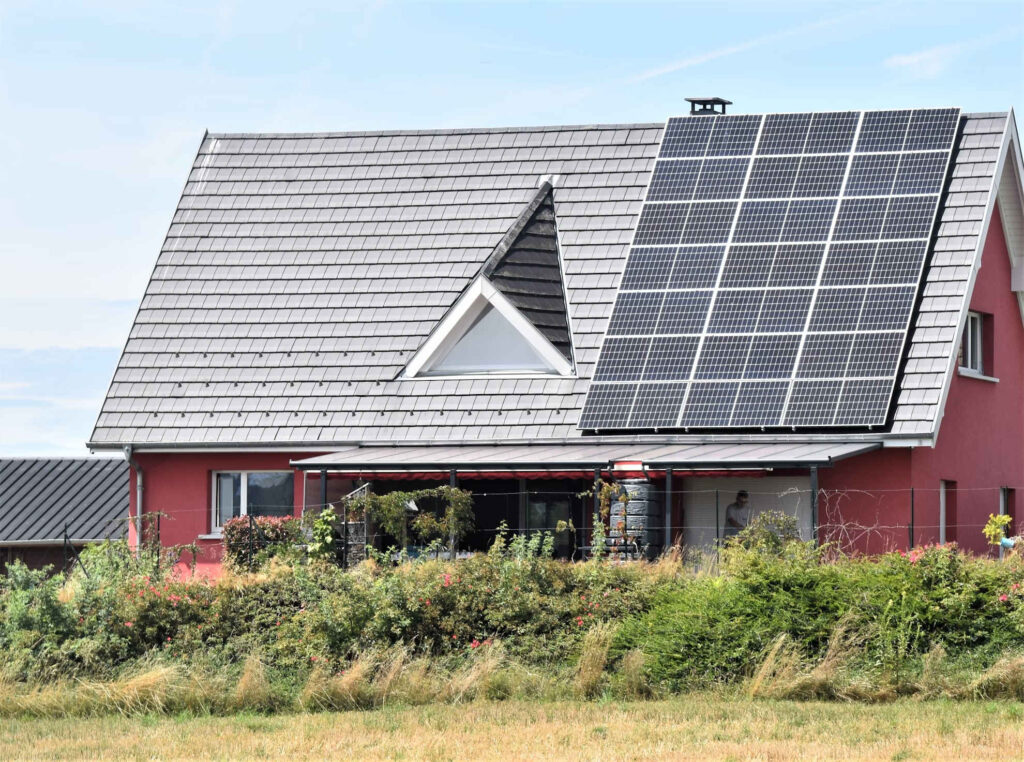
A controversial new “Sun tax,” introduced by some Australian energy distributors, has drawn heavy criticism from renewable energy advocates.
The tariff penalises households with solar panels by charging them for exporting their excess solar-generated electricity back to the grid during peak periods, a move that critics like Heidi Lee Douglas, CEO of Solar Citizens, have denounced as “madness” and a “rip-off.”
Advocates argue that the tax discourages the adoption of solar energy, especially during a cost of living crisis, and unfairly penalises those who are trying to reduce their energy bills with cleaner, renewable energy.
The two-way tariff, which aims to prevent grid congestion by encouraging households to use their self-generated solar power rather than exporting it, has been met with frustration.
Critics argue that instead of penalising solar users, the government should be supporting them with more accessible battery storage solutions to store excess energy.
While the NSW government has introduced rebates for battery storage, the high cost of these systems remains a significant barrier for many.
With the Sun tax set to impact more regions in the coming years, advocates are calling for better incentives to promote solar adoption and to support those currently excluded from its benefits, such as renters and residents in social housing.
Image credit: Daniele La Rosa Messina
Exactly the same tax in the Netherlands.
I will have now to pay €250/ annum to the grid.
In truth, european governments are bankrupt and try all kind of things ( taxes) to shake money out your pocket.
As for the electricity price, it is outrageous expensive as the EU has demolished national provider distribution that was cheap to privilege ” energy traders” who produce nothing but make a lot of money only writing invoices. Parasites. And war mongering EU
“SCHEME” is always the operative word with these people.
Solar power at present is not really viable. You can get solar panels which last maybe 7 years before the coating goes opaque and the efficiency drops. The best batteries for storage are lead-carbon which can drop to very low charge levels without being destroyed. They will last a few thousand charge cycles so about 10 years perhaps. You spend $40 thousand on your solar power and have to replace the main components in 7 to 10 years with another $40 thousand outlay. It is just not viable at present. Who can afford that, and does it make sense? Do you spend $4000 every year on energy? Unless you do then it’s not worth it.
However, supercapacitors are being developed. At present they have about 20 percent charge density of LiPo batteries so would be 5 times bigger than a LiPo for the same amount of charge. They also should allow millions of charge-discharge cycles. In the near future their capacity could be increased to match LiPo. Also, solar panels are on average about 20 percent efficient but in the lab they have made them up to 40 percent with a theoretical maximum of 80 percent. Solar panels are also more efficient when they are cooled by passing water through them. Therefore, you also get the benefit of free hot water.
Here’s what I want to see …
A turn-key solution of efficient solar panels storing to supercapacitors with a high-power semiconductor system that balances grid power against stored solar in order to power your house. You would set your own preferences for when to use stored solar and when to use the grid perhaps even using different sources for different circuits in the house at the same time – e.g. lighting from solar and electric oven from the grid. This would all be done at the fuse box.
All I see at the moment are clunky expensive solutions that nobody really can afford and make little sense even if you can. Giving energy back to the grid requires an expensive grid-tie inverter. The idea is that the grid-tie inverter must NOT generate to the grid mains if there is a power cut because if it did, any electrician working on the line would get a shock.
True- there’s many a slip ‘twixt cup and lip, as the old saying goes, and the bedazzling glamour of the pseudo science which uses newly minted terminology and acronyms daily is beginning to pall as it loses touch with humanity.
Maybe, as well as a solar tax I propose a gym tax where every machine for workouts gets fitted with a dynamo that powers a laundrette downstairs.
Solar is the same as UVs a scam.
The climate change scam exposed for what it and rorts like it, such as the scamdemic, really are, money making exercises for rich creeps and their political poodles.
In Connecticut people are having to pay for EV charge stations with this charged as a percentage of their power bills
https://www.change.org/p/demand-gov-lamont-and-pura-to-cease-public-benefit-charge-from-electric-bill